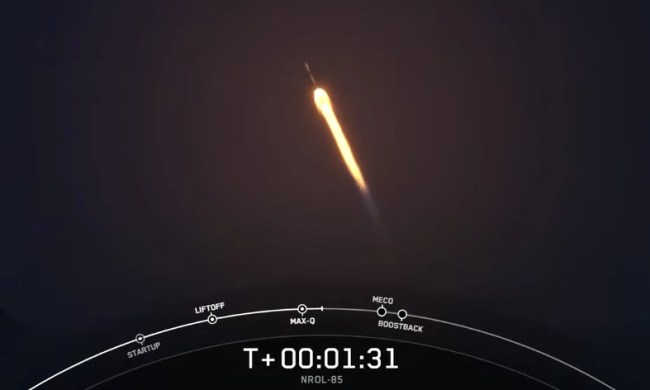SpaceX was scheduled to launch a Falcon 9 rocket from Vandenberg Air Force Base in California this weekend, but the launch had to be delayed in order to conduct extra inspections of the craft. SpaceX now hopes to go ahead with the launch on Monday instead. The company announced the delay in a tweet: “Standing down from tomorrow’s launch attempt of Spaceflight SSO-A: SmallSat Express to conduct additional inspections of the second stage. Working toward a backup launch opportunity on December 3.”
The Spaceflight SSO-A: SmallSat Express mission plans to enter low Earth orbit carrying 64 miniature satellites for a number of customers as part of a rideshare mission arranged by Spaceflight, a Seattle company which coordinates launches for small satellite users. The satellites come from a variety of places including the U.S. government, private companies, and research institutions. If the launch is successful, this would mark the most satellites ever deployed from a U.S. rocket. However, it is not the most satellites ever deployed from an international rocket launch — that honor goes to the Indian Polar Satellite Launch Vehicle (PSLV) mission launched on February 15, 2017.
This is not the first time that the SpaceX launch has been delayed, due to either the craft requiring additional inspections or weather conditions like high winds at altitude which made launching impossible. The launch is aiming to use the same Falcon 9 rocket which they have used before, and this will mark the third mission to use the first stage booster. This is important as reusing rockets is one way that the company plans to make space travel more accessible for the non-astronaut masses. This goal won’t be achieved for some time, though CEO of SpaceX Elon Musk said that he thinks a re-use of the same rocket for consecutive trips within 24 hours could be possible by 2019.
To watch the launch when it hopefully goes ahead on Monday, you can head to SpaceX’s YouTube channel where they will be streaming the event live, beginning about 15 minutes before liftoff. The launch needs to happen during the primary launch window period which begins at 10:32 a.m. PST, or 18:32 UTC, and ends at 11:00 a.m. PST, or 19:00 UTC.



